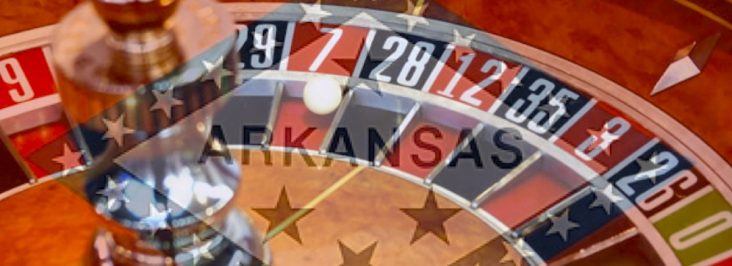Special master: Arkansas casino backers lacked initial signatures
by October 3, 2016 7:05 pm 279 views

Backers of an amendment that would grant constitutional authorization to three casinos failed to collect enough signatures to qualify for an initial “cure period,” according to a report released Monday from the special master appointed by the Arkansas Supreme Court.
The Arkansas Supreme Court will ultimately decide if the issue remains on the ballot.
The report from former Judge John Jennings listed a number of errors in the signature collection process by Arkansas Wins in 2016’ paid canvasser, National Ballot Access. Jennings had been appointed by the Arkansas Supreme Court to submit a report in the case that was filed against Martin by Chuck Lange and Bill Walmsley, individually and on behalf of the Committee to Protect Arkansas’ Values/Stop Casinos Now.
To earn a spot on the ballot, citizens attempting to pass a constitutional amendment were required to collect 85,859 valid signatures. However, they could qualify for a 30-day “cure period” by submitting 75% of that total, or 63,645 signatures by July 8. Secretary of State Mark Martin’s office determined that the casino backers submitted 63,725 valid signatures, which was 80 more than needed.
Lange said in a statement released by the Committee to Protect Arkansas’ Values/Stop Casinos Now, “The out-of-state opportunists pushing this amendment hired out-of-state operatives who did not understand or follow Arkansas’ laws to conduct its signature gathering process. We are confident that, as this process plays out, that both the Arkansas Supreme Court and the people of Arkansas will see this amendment for what it is. A scam being perpetrated upon the good people of Arkansas.”
Robert Coon with Arkansas Wins in 2016 released the following statement: “The responsibility of the special master is to make findings of fact. In this particular case, the special master went beyond his authority and made conclusions of law. We disagree with his findings of fact and conclusions of law, which were clearly wrong. The Supreme Court still has a number of items yet to consider in this case, including our motion to dismiss for lack of jurisdiction, which two other ballot committees have filed similar motions with the Court. We believe the Court will examine the record closely and apply the law fairly and accurately.”
Arkansas Code 7-9-109 requires ballot access seekers to be given deference regarding strictly clerical and technical errors.
Issue 5 would create a constitutional amendment authorizing the building of one casino each in Washington County, Miller County and Boone County. The casinos would be required to pay the state 18% of their net and would pay 1.5% to the city where they are located and .5% to their local counties. An Arkansas Gaming Commission would regulate.
Jennings said Arkansas Wins in 2016 should not have qualified for the cure period based on a number of errors. He said 729 signatures were invalid in the initial count, which the secretary of state concedes. That would drop the initial amount to 62,996 signatures, below the amount needed to qualify for the cure period.
Those included:
• 25 signatures that were on petitions without a notary seal;
• 235 signatures that were dated after the notary date;
• 316 signatures that were collected by paid canvassers prior to the date the canvasser registered with the secretary of state; and
• 153 signatures that did not contain sufficient identifying information in the signature line.
Moreover, National Ballot Access was required to submit in person a current residence address. Thirty canvassers registered in June with the secretary of state’s office listed out-of-state residence addresses rather than the Arkansas addresses where they were staying. Those canvassers collected 19,770 signatures in the initial submission.
Also, Jennings said the evidence showed that the sponsors did not obtain background checks from the Arkansas State Police for 13 paid canvassers. Instead, they were obtained from a company working for the sponsors of a tort reform ballot initiative. Those canvassers collected 1,603 signatures. Timely background checks were not obtained for another two canvassers, which National Ballot Access’ Heidi Gay conceded. That would reduce the number of signatures collected by another 395.
A forensic document analyst, Robert Kullman, found 1,168 signatures where the same person had completed more than one signature.
Other areas included:
• 105 signatures without a date of birth;
• 69 signatures with only a partial date of birth;
• 168 signatures with an erroneous date of birth;
• 747 signatures where the voter did not provide a residence address;
• 184 signatures where the voter listed a post office box as their residence address; and
• 60 signatures where one canvasser crossed out the name of another, or there were two canvasser names provided
